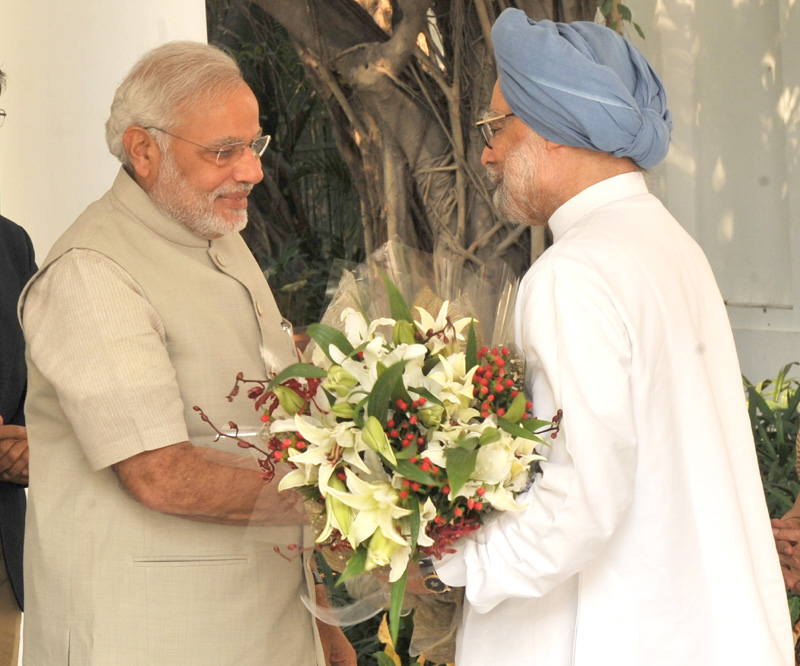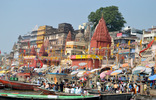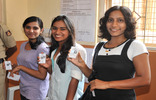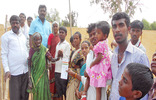News and Analysis
What the Modi juggernaut entails
The sweeping mandate in favour of the BJP under Narendra Modi was largely an outcome of the articulation of his idea of development, popularised as the “Gujarat Model.” But what could the defining features of such a model be? Leo F Saldanha elaborates.
Can farmers look ahead to “acche din” as well?
Narendra Modi’s attention to the woes and plight of farmers during election campaigning has raised a lot of hope for improvement among members of the beleaguered community, but can he deliver? Devinder Sharma presents an 11-point prescription for turning the agricultural sector around.
The AAP phenomenon: Too early for an epitaph
The results of the 2014 Lok Sabha elections apparently point to an abysmal failure of new politics as championed by the Aam Aadmi Party, but a deeper look by Himanshu Upadhyaya suggests all may not be over just as yet.
Penalties rare for Togadias and Masoods, but mileage aplenty

The fierce political campaigns around the 2014 general elections have seen rampant communal rhetoric and instances of hate speech by followers of all camps. Tanvi Bhatikar digs deeper into hate speech law and judicial proceedings in India with a comparison to UK and Europe.
Why voters in Telangana are still puzzled
Days before Telangana goes to polls, Venugopalrao Nellutla examines the lack of exuberance and the dilemmas among people in the region, even as they look ahead to statehood and their own government in weeks from now.
Can educated MPs do more for education?
Basic education and subsequent employment opportunities are issues that India has continued to grapple with even during periods of reasonable growth. Could highly educated parliamentarians necessarily drive these forward? Tanvi Bhatikar analyses findings of a recent voters' survey in search of an answer.
Why I will not fall for the 'vote for PM' trick
As India votes in the midst of a rising campaign crescendo that pits one individual against the other, Subramaniam Vincent urges the electorate to prioritise a 'better parliament.
What they say about the things that really matter
Responsible governance, economic security for the maximum numbers and ecological sustainability are the three key challenges facing the country today. Ashish Kothari deconstructs the Congress, BJP and AAP manifestos to see what these parties promise on these fronts.
How parties are wooing the young voter
The 2014 elections will go down as one of the most exciting in the history of the Indian democracy and the huge number of voters among the youth could well emerge to be the real game-changers. Tanvi Bhatikar looks at the manifestos of the three main parties to see what they have to lure young voters.
Will the Western Ghats decide Kerala's mandate?

The controversy over the Gadgil and Kasturirangan reports on ecological preservation in the Western Ghats has brought about a churn in politics in Kerala. P N Venugopal wonders if this will determine the decisions of the electorate in the Lok Sabha elections.
Who will spare a thought for the environment?
With the manifestos of all major national parties finally released, Himanshu Thakkar presents a comparative reading with a lens on environment and natural resource management.
Could Modi be a development disaster?

If the cost of ecological damage and social deprivation are accounted for, Narendra Modi will only be half as tall as he is made out to be, says Ashish Kothari, issuing a grave warning.
The not-so-glittering stars in Parliament
As parties firm up their candidates in various constituencies, several celebrity names - new and old - are doing the rounds yet again. Shoma Chatterji looks at a few examples from the years gone by to question what we may really expect from these star-turned-politicians.
NaMo RaGa brandwar drowns out Assam’s cries
The ruling government has seen limited success in some areas, but the state's lingering needs seem to have been forgotten in the war of personalities ahead of the looming parliamentary elections. Ratna Bharali Talukdar has more.
Mr. Leader, I have a question...

As the rhetoric among political parties over their commitment and promises to the people rises, Shankar Jaganathan articulates that one question that will test what they truly stand for.
What has your MP done for you?
As elections draw nearer, it is more important than ever to understand the way the Lok Sabha functions and what our Members of Parliament are expected to do. Only then can we assess their performance and who may be the best choice, writes R Balasubramaniam.
Rating our MPs: A few ground truths
What should be the yardstick of performance for our leaders in the Lok Sabha? Should they be held accountable for issues of governance in their local constituencies, or their legislative record in parliament? Kishore Mandyam explains his stance.








 HYDERABAD
HYDERABAD KOLKATA
KOLKATA CHENNAI
CHENNAI DELHI
DELHI BANGALORE
BANGALORE








